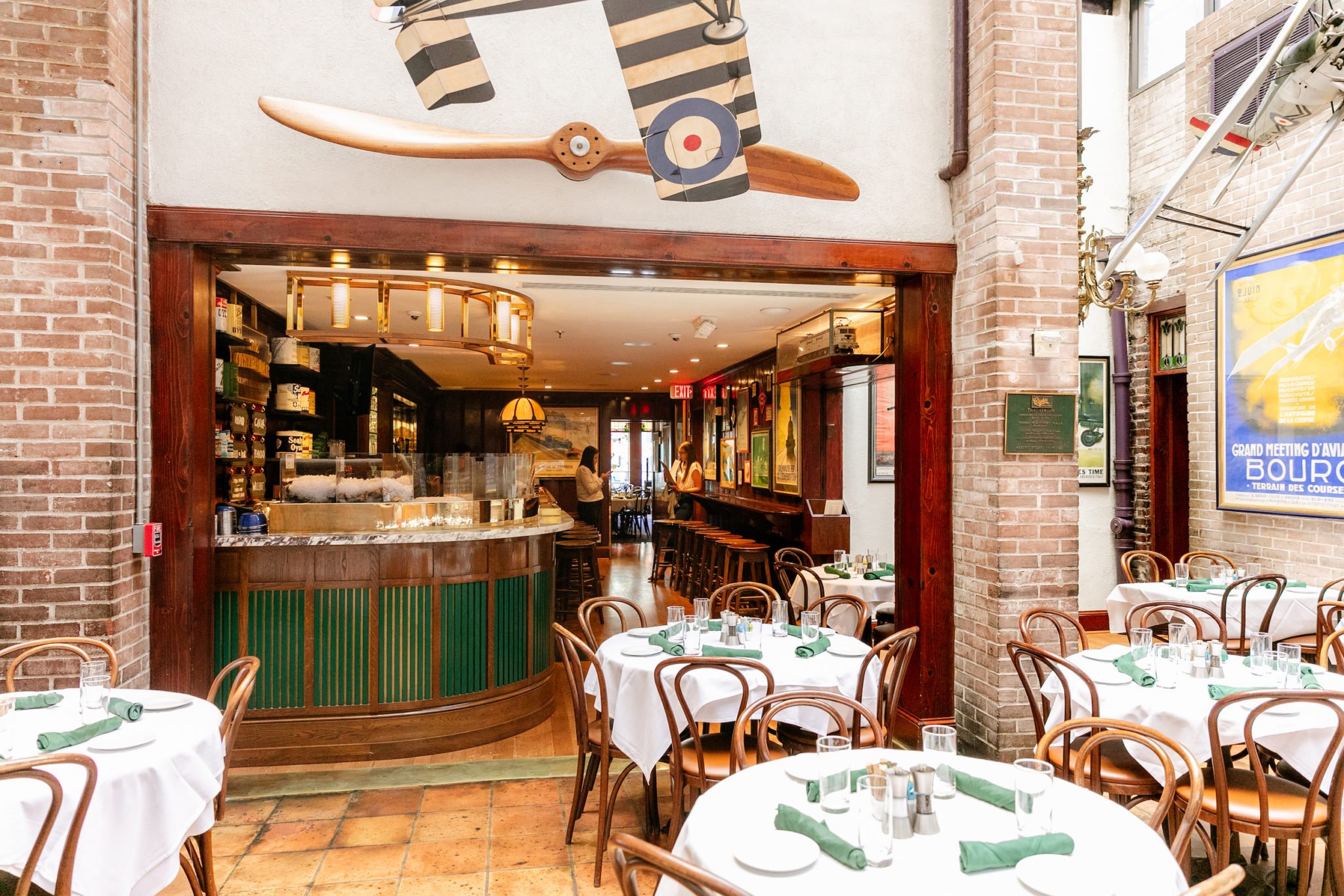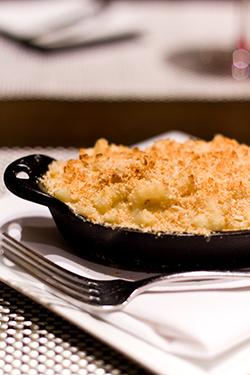Travelers United, a DC-based non-profit that advocates for travelers, has sued Clyde’s Restaurant Group for unfair and deceptive advertising. The group alleges that a 3.75 percent “2023 surcharge” on the menu at all Clyde’s restaurants—which include Old Ebbitt Grill and 1789—violates DC’s consumer protection laws and liquor licensing requirements.
“It’s a fee for nothing,” says Travelers United counsel Lauren Wolfe. “This is not a fee that pays for staff. This is not a fee that pays for any sort of service or extra food. This is simply a fee so that they can lie about the advertised price.”
A note on the menu of Clyde’s restaurants’ reads: “Our restaurants have been operating with extraordinary increases in the cost of doing business. High inflation, rising wages and supply chain challenges have continued beyond the pandemic creating a difficult operating environment. We have reluctantly chosen to implement a separate 3.75% fee for 2023 with the hope that it can be eliminated in the future as conditions improve. We appreciate your support and understanding.”
Clyde’s Restaurant Group President John McDonnell argues that the surcharge is compliant with the DC Attorney General’s recent guidance on transparency for restaurant fees. “It’s a little surprising to be conforming to the guidance that you rely on from your local government to then be sued for it,” he says. “I think it’s a little sad that they’re going after restaurants at a time when the forces of inflation and a lot of issues coming out of Covid are still really hanging on there,” he says.
McDonnell says Clyde’s added the surcharge at the start of the year to deal with “huge inflationary spikes, which honestly we didn’t think were going to be a forever thing.” He says it was a “coin toss” whether they added those extra costs to menu prices or separated them out as a surcharge. Ultimately, they opted for the latter because they hoped it would be a temporary measure. “Once people get comfortable paying higher prices, restaurants tend to not bring them down when costs come down. We said, ‘You know what? Why don’t we do a surcharge and then if things ease up dramatically, we just remove it.'”
McDonnell says a “very, very tiny percentage” of customers have an issue with the surcharge. If someone complains, the restaurants just refund them. “It’s not that controversial on our end,” he says.
This is the first lawsuit that Travelers United has filed against a restaurant, but it has also taken on MGM Resorts, Hyatt, Hilton, and Sonesta hotels for alleged “drip pricing”—the advertising practice of promoting a lower price with hidden add-ons. This latest lawsuit cites a lunch that Wolfe and Travelers United President Charlie Leocha had at Old Ebbitt Grill in October. They ordered calamari, an autumn market salad, and a grilled steak salad. The bill came to $58.07, before tax, with a $2.10 surcharge.
“We saw this as an increasing problem in DC, and obviously, there’s a lot of tourists in DC… and so we went to what I think is the most touristy of restaurants: Old Ebbitt,” Wolfe says. The lawsuit also notes that Old Ebbitt is one of the highest-grossing independent restaurants in America and “is not struggling for business.”
“There is no excuse for the Old Ebbitt Grill to hide a 3.75% fee instead of simply raising their menu prices and being honest with consumers,” the complaint reads.
Wolfe says Travelers United is not opposed to service fees in general. She says that plenty of restaurants have transparent fees that go toward staff wages, but she alleges Clyde’s gives “no explanation of where this money’s going.”
For 2024, Clyde’s Restaurant Group had already been leaning toward raising prices instead of keeping a surcharge, but whatever happens, McDonnell says it won’t have anything to do with the lawsuit. “On behalf of those restaurants who don’t want to roll over, right now, we’re still inclined to fight it,” he says.
Clyde’s is still determining how to best address rising labor costs in the wake of Initiative 82—the new DC law that phases out the system allowing businesses to subsidize base wages with gratuities. McDonnell says their approach in the next year will depend in large part on whether the DC Council approves legislation to shorten the implementation time for Initiative 82. Eventually, McDonnell envisions increased prices with “service included” and tips discouraged.
Unlike Travelers United’s lawsuits against hotels, this is not a class-action lawsuit. Wolfe says the primary goal of the complaint is to get Clyde’s Restaurant Group to take away the surcharge (they are seeking “punitive damages to be determined at trial”). But she also hopes it will send a wider message: “Restaurants need to remove these fees for nothing and just raise prices. That is not just what consumers want, it’s the law. ”
Although Travelers United has only singled out Clyde’s Restaurant Group for now, Wolfe says she believes the problem of deceptive menu fees is growing at a “concerning rate” across DC.
“We sued three hotel groups in DC,” she says, “and maybe we’ll do the same with restaurants.”














